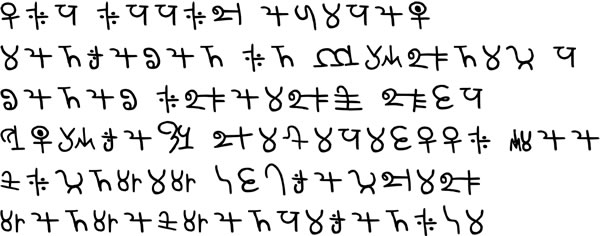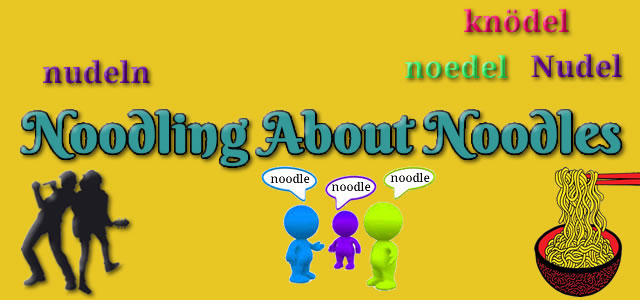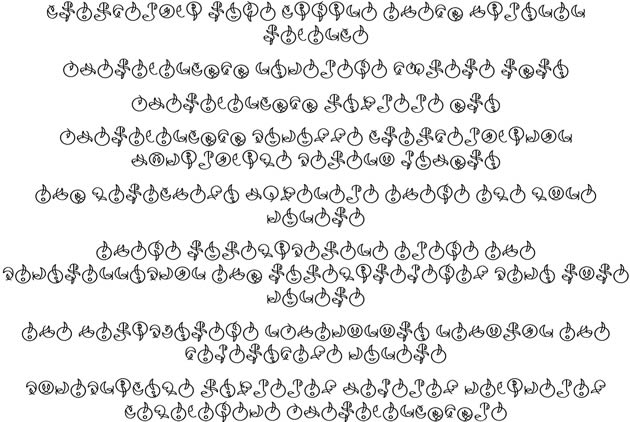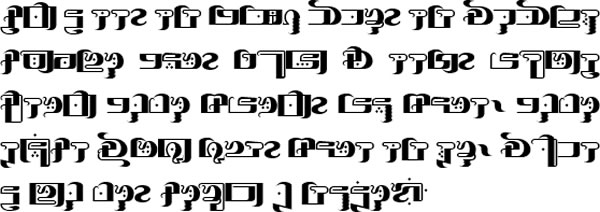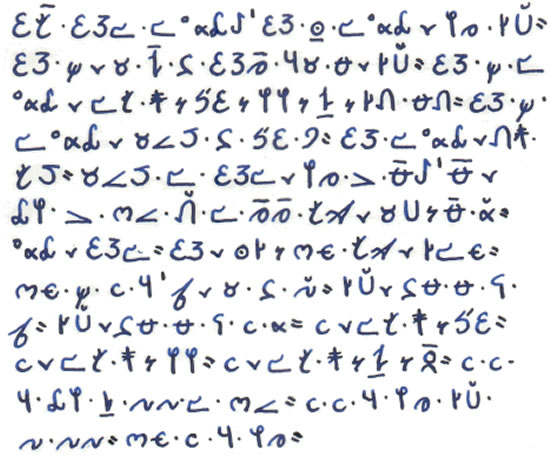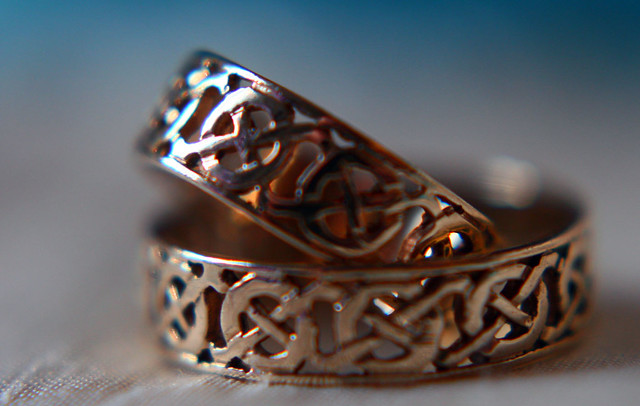Podcast: Play in new window | Download

Here’s the latest news from the world of Omniglot.
There are new language pages about:
- Ambo-Pasco Quechua (Kichwa), a Central Quechua language spoken in central Peru.
- Matsés, a Panonan language spoken mainly in Brazil and Peru.
- Yine, a Southern Arawakan language spoken in eastern and southern Peru.
New constructed script: Skyling Script, which was invented by Kitsune Sobo for his fictional Rhodinoverse.
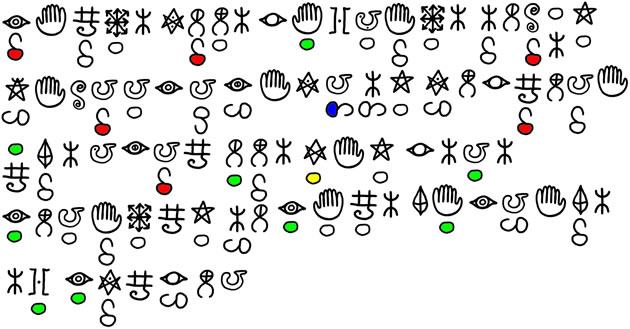
New constructed script: Japonesian, which created by Aiden Neuding as an alternative way to write Japanese and Indonesian.

New numbers pages:
- Chuj (Koti’), a Mayan language spoken in western Guatemala and southern Mexico.
- Tzotzil (Batsʼi kʼop), a Mayan language spoken mainly in the Mexican state of Chiapas.
- Tzeltal (Bats’i k’op), a Mayan language spoken in the Mexican state of Chiapas.
On the Omniglot blog there’s a new post about Madrugadores (Early Risers), and there’s the usual Language Quiz. See if you can guess what language this is:
Here’s a clue: this is an International Auxiliary Language (IAL).
The mystery language in last week’s language quiz was Khanty (Ханты), a Ob Ugric language spoken in the Khanty-Mansi and Yamalo-Nenets Autonomous Okrugs in the west and north of the Russian Federation.
In this week’s Celtic Pathways podcast, entitled Fortified Dunes, we uncover Celtic fortresses among the sand dunes.
On the Celtiadur blog there’s a new post about words for Blessings and related things, and I made improvements to the post about words for Talkative.
I also made improvements to the Tzotzil, Tzeltal and Kubachi language pages.
For more Omniglot News, see:
https://www.omniglot.com/news/
https://twitter.com/Omniglossia
https://www.facebook.com/groups/omniglot/
https://www.facebook.com/Omniglot-100430558332117
You can also listen to this podcast on: Apple Podcasts, Amazon Music, Stitcher, TuneIn, Podchaser, PlayerFM or podtail.
If you would like to support this podcast, you can make a donation via PayPal or Patreon, or contribute to Omniglot in other ways.
Radio Omniglot podcasts are brought to you in association with Blubrry Podcast Hosting, a great place to host your podcasts. Get your first month free with the promo code omniglot.




